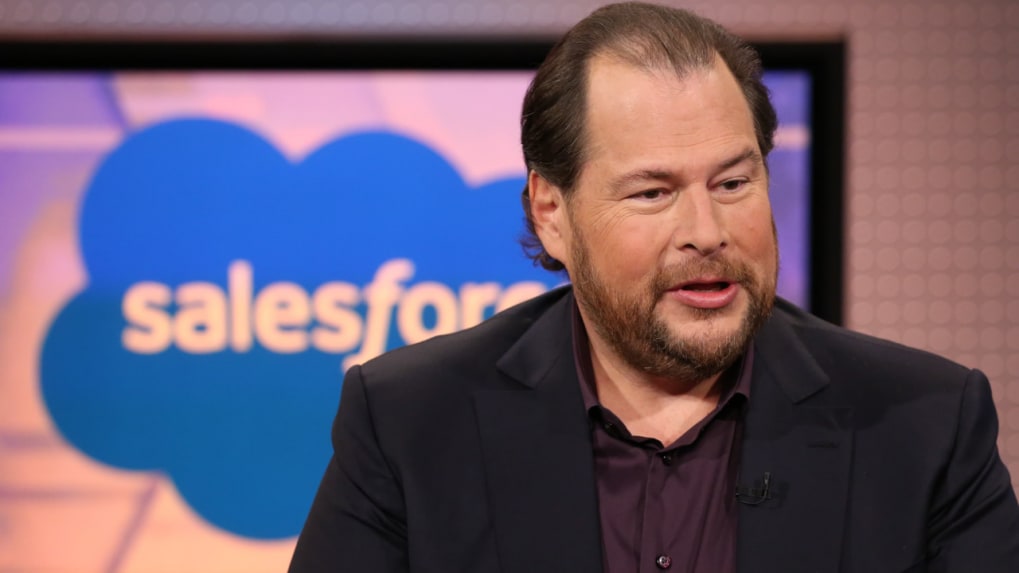Salesforce CEO Marc Benioff on how AI does up to 50% of the job at the company
Salesforce’s push for AI adoption is part of a broader trend across the tech industry, where companies are turning to automation to cut costs and boost productivity.
ADVERTISEMENT
Salesforce is leaning more heavily than ever on artificial intelligence to power its business, with CEO Marc Benioff revealing that AI now handles between 30% and 50% of the company’s work. In a recent interview with Bloomberg, Benioff called the shift part of a broader “digital labour revolution,” saying that both employees and businesses must adapt to a world where AI is responsible for many tasks traditionally done by humans.
“All of us have to get our head around this idea that AI could do things that before we were doing,” Benioff said, describing the change as a move toward “higher-value work” rather than simple automation.
Salesforce’s push for AI adoption is part of a broader trend across the tech industry, where companies are turning to automation to cut costs and boost productivity. Earlier this year, Salesforce laid off more than 1,000 employees as part of a restructuring plan aimed at sharpening its focus on AI technologies.
Benioff also spoke about the performance of Salesforce’s own AI systems, noting they achieve an impressive 93% accuracy rate. However, he cautioned that perfection remains out of reach. “We’re not going to get to 100% accuracy,” he said. He argued that other AI vendors often struggle with lower accuracy rates because they don’t have access to the same volume of training data and metadata that Salesforce does.
Benioff’s comments come as other tech giants also ramp up their use of AI to handle tasks previously done by humans, particularly in software development. At a recent earnings call, Google CEO Sundar Pichai revealed that more than 30% of new code at Google is now generated by AI tools—a notable increase from 25% in October 2024.
Microsoft CEO Satya Nadella has offered similar figures, saying that about 30% of code at Microsoft is currently AI-generated, with some projects potentially relying entirely on AI-written code.
Tech leaders insist that these developments don’t just threaten jobs but will also create new kinds of opportunities. Benioff framed the shift as a necessary adaptation that frees people up for more meaningful work.
Meanwhile, Google DeepMind CEO Demis Hassabis has encouraged younger workers to embrace AI as a powerful tool that will enable more creative and valuable roles in the future.
At the same time, companies like Anthropic are making it easier for individuals to harness AI themselves, even without deep technical knowledge. Anthropic’s Claude chatbot recently introduced an update that lets users create, host, and share AI-powered applications directly while chatting. The tool takes care of complex back-end tasks like scaling, prompt engineering, and API management, lowering the barrier to entry for building AI-driven products.


